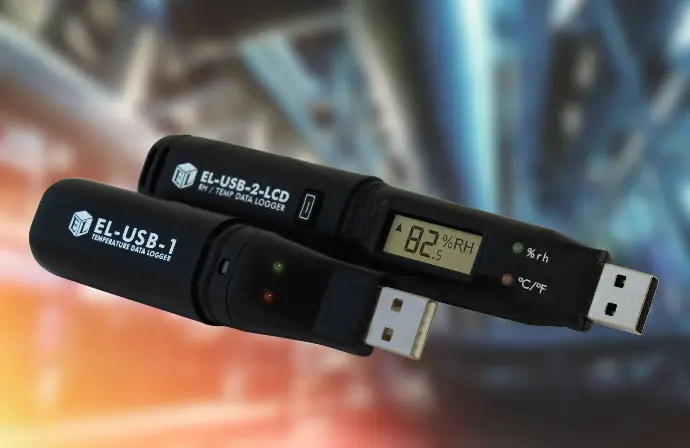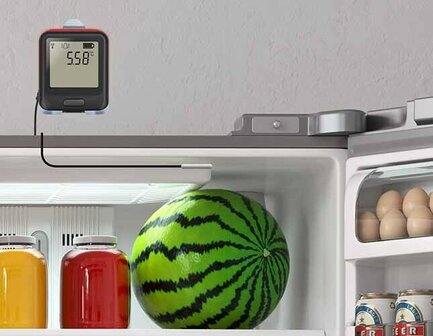Dataloggers
USB/Bluetooth
In our increasingly data-driven society, it is essential to choose the right datalogger for accurate and reliable data recording. Whether it's collecting and analyzing environmental parameters (temperature, pressure, relative humidity, ...), ensuring food safety, or conducting scientific research, choosing the right datalogger is crucial.
Dataloggers are instruments that measure specific parameters, collect and store data over a period, and are essential in various sectors such as scientific research, industrial processes, transportation, building management, HVAC, HACCP, pharmaceuticals, healthcare, ... This is crucial for optimizing activities and data-driven decision-making.

Why choose a Bluetooth or USB datalogger?
Choosing Bluetooth or USB dataloggers offers specific advantages, especially if you need flexibility and simplicity in data collection and analysis. These dataloggers are ideal for situations where real-time monitoring is not crucial, but accurate historical data analysis is. They are particularly convenient for environments where WiFi connectivity is limited or unavailable. Additionally, they provide ease in physically transferring data from the logger to a computer without the need for a constant internet connection, making them an excellent choice for fieldwork or mobile applications.
What is the difference with WIFI dataloggers?
While Bluetooth and USB dataloggers store data for later analysis, WiFi dataloggers provide real-time monitoring and alerts via the internet. This allows for immediate action and response, ideal for situations where immediate data input is crucial.

Dataloggers in various sectors
Transport
Implement dataloggers in transport vehicles to monitor the temperature and humidity of sensitive goods, such as food and medicines, during transportation.
Building management
Apply dataloggers to increase energy efficiency by recording and analyzing HVAC systems, lighting, and other energy-consuming elements.
HVAC
Use dataloggers to monitor air temperature, humidity, and other environmental variables to ensure optimal indoor climate and system performance.
HACCP
Implement dataloggers in food production and storage to ensure compliance with food safety standards through continuous temperature monitoring.
Industrial processes
Use dataloggers to monitor temperature and pressure within production lines, which is essential for quality control and safety standards.
Public places
In schools, sports clubs, meeting rooms, ... dataloggers can be deployed to monitor air quality, such as CO2 levels, temperature, and humidity. This ensures a healthy and safe environment for students, athletes, and visitors by ensuring that the spaces are well-ventilated and maintained.
Healthcare
Use dataloggers in hospitals and clinics to monitor the storage conditions of vaccines, medications, and biological samples.
Pharmacy
Utilize dataloggers to monitor the storage conditions of pharmaceutical products to comply with strict regulations and quality standards.